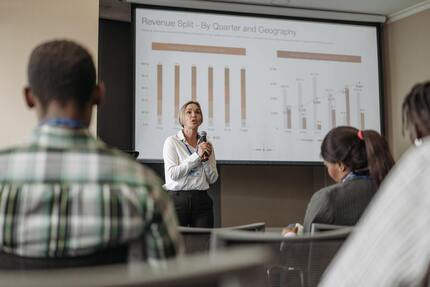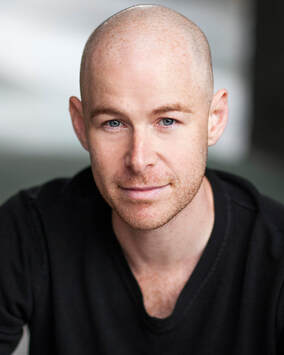Anxiety, doubt, fear, nerves and self-consciousness are still prevalent and domineering tropes that continue to overwhelm and demoralise public speakers worldwide. Modern technology has given us access to an ever-increasing variety of dynamic presentation formats, styles and platforms. However, over the past five years, I have noticed that the ultimate achievement for many an entrepreneur, corporate CEO, startup founder and business representative is to excel as a live spoken word presenter.  Understandably, the ability to challenge, inform, lead and question are vital to communicating ideas and will impact the successful growth of any company. Not even just a requirement for successful communication, but public speakers are fast becoming the new rockstars of today, whilst their talks and presentations, the concerts. Many aspiring entrepreneurs follow and quote the stars of the stage, such as Gary Vaynerchuk, Tony Robbins, Berne Brown, Mel Robbins and Simon Sinek, to name a few. And the tentacles from each high profile speaker's philosophy, methodology or technique reach far and wide through social media and platforms such as YouTube, Instagram and TikTok. It is not a popularity contest, but public speaking environments undoubtedly have a broad range of speakers (and audiences) whose ability and impact can improve through the application of voice studies. What About Mindset?With the increasing popularity of growth mindsets, as studied by Stanford psychologist Carol Dweck and laid out in her book 'Mindset: The new psychology of success', "modern startups continually promote leadership qualities in all team members, self-belief plays a key role, and effective communication skills a common goal." Yet, according to the Psycom.net Mental health research website, "75% of the population are affected by glossophobia." And as Jeffrey R. Strawn, MD, FAACAP, associate professor of psychiatry and paediatrics and director of the Anxiety Disorders Research Program in the Department of Psychiatry & Behavioral Neuroscience at the University of Cincinnati, says, "We know that some individuals tend to have more anxiety related to certain circumstances in which there may be a fear of evaluation and embarrassment." No matter how popular public speaking has become, how many keynotes are given to teammates or how many zoom meetings are attended to share thoughts and ideas. Likewise, no matter how many TedTalks and Masterclasses get watched to educate and train the minds of all those, who would either willingly or not, be expected to present themselves vocally, the disruptive and negative feelings remain. It's more than just a crippling fear because, for many, it's thrilling to be scared. People get a kick from stepping out of their comfort zone and presenting themselves before an audience, be it live or online. But as Margee Kerr, PhD, sociologist, and author of 'Scream: Chilling Adventures in the Science of Fear,' points out: "Our body is a refined, well-oiled machine getting ready to fight or flee. Think of it as hijacking the flight response and enjoying it,". Each speaker's perception then will determine how any adrenaline triggered gets responded to by the body. Self-perception, Talent, Genetics and SkillI have witnessed many people, pleased with their apparent natural skillfulness in public speaking, consider it a birthright or something that has been handed down partly through luck, genetics or even both. But, unfortunately, others who are seemingly unhappy with their voice can similarly feel ill-fated or unlucky with the voice they consider they are given. While our genetic structure impacts our voice, I don't believe we are limited to this factor alone. This perception we hold of our voice and its communicative ability, especially within the context of live scenarios often associated with public speaking, is multi-faceted and affected by the following:
Understanding the impact that such a complicated web of varients can have on how effectively we communicate to an audience and how we perceive our ability to do so is a curious problem. But if solutions are available to guide public speakers in developing and freeing their voice without fear, self-judgement, strain, or effort, they are well worth the effort. Indeed, the need for communicating and expressing ideas is that of connecting with the world. Suppose we unburdened our conscious mind from inhibition and distraction. In that case, we might learn to trust ourselves and focus more on our words' intentions and the content of our message rather than the process of their creation and perceived impact. As humans, our most precious and immediate form of expression, the voice, is as personal, dynamic and engaging as any other experience we might have throughout life. And by experience, I mean the living, breathing connection we share and receive with others through our ability to formulate sound into distinctive waveforms that can indeed have a real impact in the changing course of time. Communication & Connection Suppose we cannot express ourselves and connect to our environment as wholly as we want or need. In that case, our very spirit diminishes as there is nothing more unwelcome to our nature than the feeling of being alone. As John Cacioppo, director of the Center for Cognitive and Social Neuroscience at the University of Chicago and one of the nation's leading experts on the neurobiology of loneliness, says: "people grow lonely because of the gloomy stories they tell themselves. And, in a cruel twist, the loneliness itself can further distort their thinking, making them misread other people's good intentions, which in turn causes them to withdraw to protect themselves from further rejection," Which feeds back into the views on perception quoted earlier from Dr Carol Dwek. Within any industry where communication and the ability to voice oneself effectively are held in high regard, many fall short of the expected norms. Whether confident, thrill-seeking or simply terrified. Therefore, the voice, being so personal, if lacking the clarity and conviction deemed suitable by our peers and audience, can erode our self-worth and alienate us further. But it needn't be so. Through my experience working as a public speaker, actor, singer, and voice coach, I have learned a great deal about the mind and body connection and how our perception of such performance scenarios has a massive impact on how we cope emotionally. Our emotional state informs both our body and mind and seems, in my view, to be the bridge connecting the two. If this bridge becomes blocked, broken or damaged in any way, the messages between the two get distorted, as does our connection with those we aim to communicate. The Voice as an Instrument I consider the body as an instrument, in which (no matter how skilful the player), if it is out of balance, poorly treated and left unused for some time, it will not perform at its optimum. That is to say, knowledge of any given subject, rhetoric, context, and intentions are pointless if we cannot vocalise ourselves clearly and audibly. I have discovered that approaching public speakers first on the physical elements of speaking, such as developing and maintaining a relaxed body with good alignment and a free-breathing system, to be of great benefit. I also introduce vocal agility and dexterity exercises at this stage, inviting speakers to consider their bodies as instruments. They are an instrument that they inhabit, which can be manipulated, improved upon, and encouraged to function more optimally for voice production. By focusing first on an individuals physical 'speaking' whilst eradicating the notion of the 'public', speakers tend to acknowledge the importance of the physical act of speaking itself, unhindered by emotional reaction or self-judgement. We might then consider the psychological aspects of speaking and look at ways to demystify the inadequacies and phobias around being present in a room of people by discussing habits, emotions and developing skills that allow us to act more clearly, calmly and concisely. To achieve this, I have used hypnotherapy, visualisations, affirmations, and good old fashioned encouragement to invite the opportunity for change in clients perceptions and have noticed varied responses to the stimuli used. Lastly, in my current method for working with public speakers, I introduce students to performance techniques and ways to connect with text. These methods often used by actors, such as discovering how one wants to affect the listener and actioning, provide stimuli that can be of emotional benefit as the mind can become misdirected and less focused on oneself. One can only act as a guide and overseer who might offer tools and techniques to a student or professional undertaking further training to enhance their public speaking ability. Having an adequate amount of tools and resources to cover all aspects of training then is a necessity. Even more important is knowing when and how to implement said methods so that the timing is right for each individual's needs. Freeing (not blocking) our voicesVoice Studies for public speakers is as holistic as for any actor but (I would argue) approached using more straightforward terminology and a subtler method of allowing freedom of expression to flow. Language then is a powerful tool that can vastly affect ones learning experience. Words have an impact. Our choice of words must be discerning and suitable to ensure an approach that expands the speaker's confidence and engages with their creative instincts and imagination. It must also suit each individual's own needs and learning method. An approach that tends to dictate and lecture may close down the speakers' will to engage and have them 'guard' instead of 'free' themselves. As the act of public speaking is certainly a performance of sorts, the application of voice studies in a professional setting is hugely beneficial on the physiological, psychological and, therefore, performance ability and presentation of a standard conducive to a required or preferably desired outcome. Applying voice studies into professional public speaker training offers new perceptions and perspectives on the self, which can, almost certainly, help reduce, if not eliminate anxiety, doubt, fear, nerves, and self-consciousness in this ever-expanding industry of stage performance & presentation.
Quote Links and Photo CreditsARTICLES FOR RESEARCH:
1 Comment
Abigail
14/1/2023 03:34:26 am
I would like to try voice acting for a 12 year old
Reply
Leave a Reply. |


